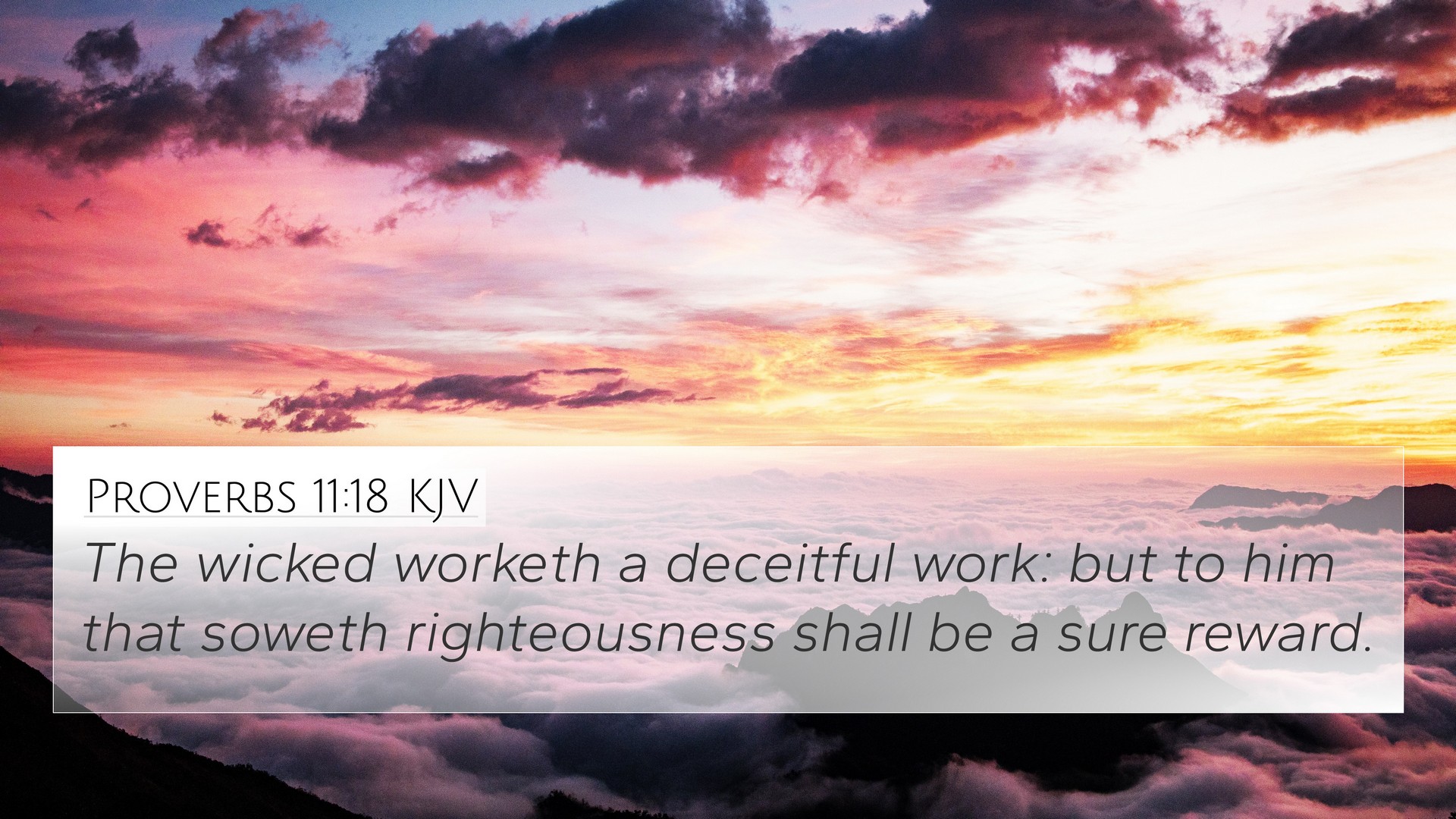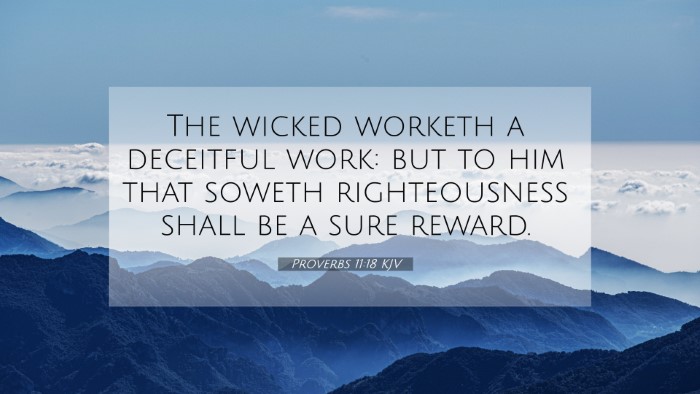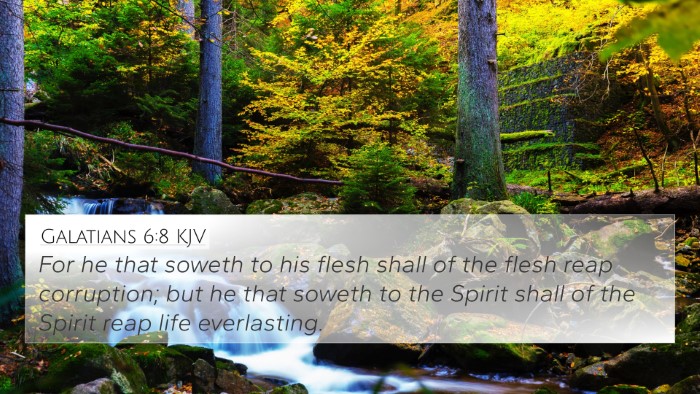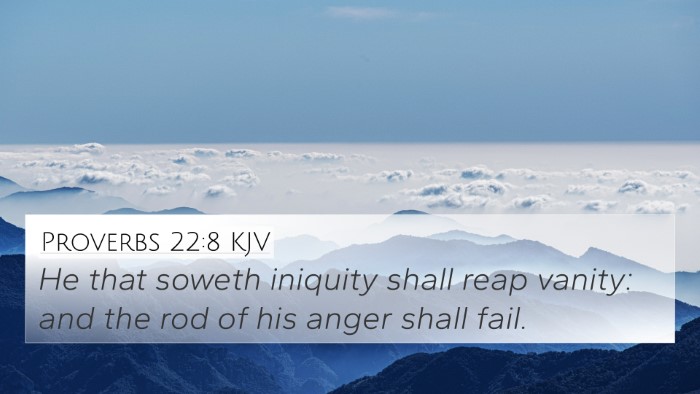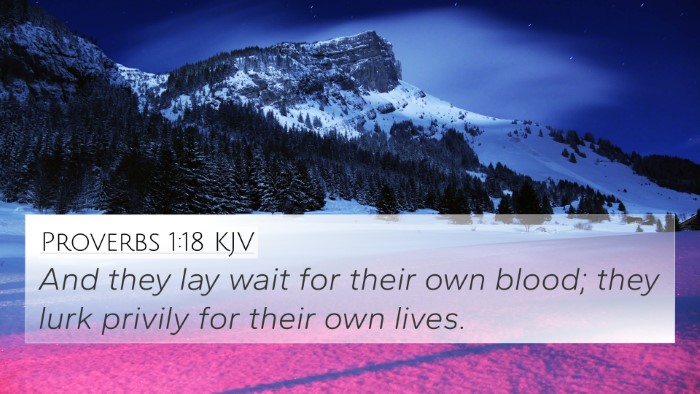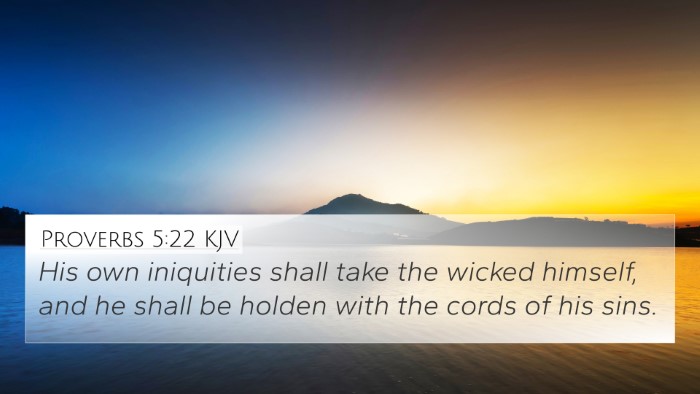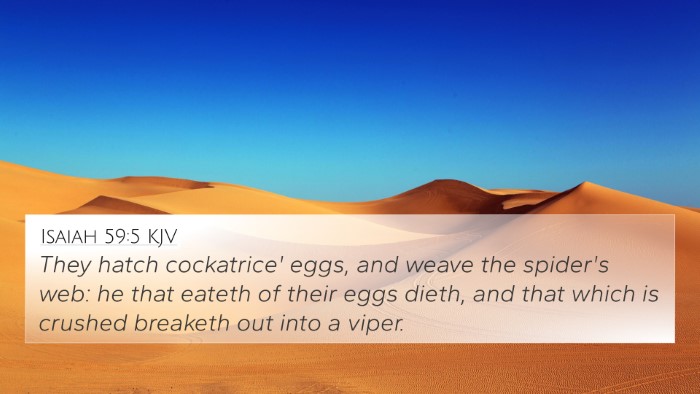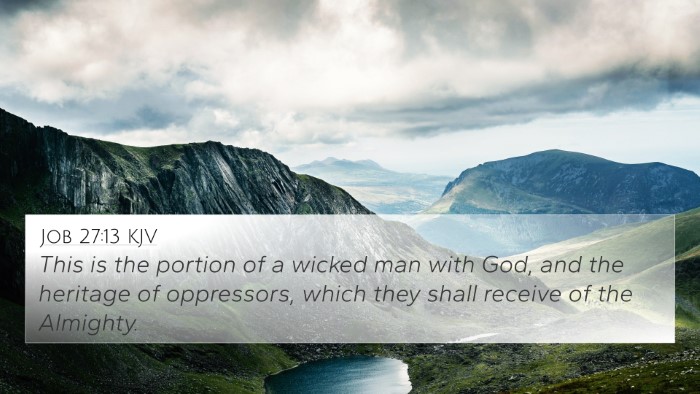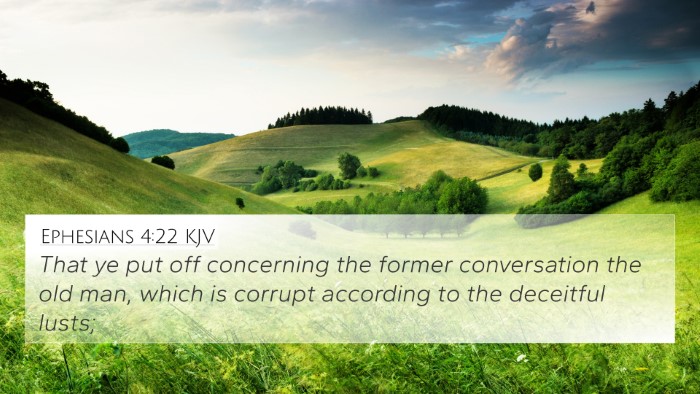Understanding Proverbs 11:18
Proverbs 11:18 states: "The wicked worketh a deceitful work: but to him that soweth righteousness shall be a sure reward."
This verse encapsulates a profound truth about morality, the outcomes of one's actions, and the nature of righteousness versus wickedness.
Verse Analysis
Combining insights from respected public domain commentaries, we can understand this verse on multiple levels:
- Wickedness and Deceit: The verse starts with an observation of the wicked, emphasizing their reliance on deception to achieve their ends. Matthew Henry comments that such deceitful work will ultimately lead to remorse and loss, as the wicked's acts trap them into a web of their own making.
- Righteousness as a Seed: The latter part of the verse highlights the rewards of righteousness. Adam Clarke notes that sowing righteousness implies active engagement in virtuous deeds, which ultimately yields a harvest of good reward—spiritually, morally, and often materially.
- Divine Justice: Albert Barnes highlights the certainty of reward for those who pursue righteousness. The idea that righteousness leads to a "sure reward" underscores the biblical principle of divine justice; those who act justly will see the fruits of their good deeds manifest in their lives.
Key Themes
Several key themes arise from this verse:
- Consequences of Action: Actions rooted in wickedness may seem profitable at first, but they lead to ultimate failure, while righteous actions bring about blessings and fulfillment.
- Integrity in Character: The contrast between wickedness and righteousness highlights the intrinsic value of moral integrity and the importance of living a life aligned with God’s principles.
- The Assurance of God’s Promises: The "sure reward" offered to those who sow righteousness reflects God’s unwavering faithfulness to reward those who walk in obedience and truth.
Bible Cross References
To further enrich the understanding of Proverbs 11:18, here are several Bible verses that cross-reference and enhance its meaning:
- Galatians 6:7-8: “Be not deceived; God is not mocked: for whatsoever a man soweth, that shall he also reap.” This verse parallels the idea of sowing and reaping, linking it closely with the consequences of one’s actions.
- Psalm 37:16-17: “A little that a righteous man hath is better than the riches of many wicked.” This emphasizes the enduring value of righteousness compared to fleeting wealth derived from wickedness.
- Proverbs 12:14: “A man shall be satisfied with good by the fruit of his mouth: and the recompense of a man's hands shall be rendered unto him.” This reiterates the certainty of divine justice concerning one’s deeds.
- Proverbs 10:16: “The labor of the righteous tendeth to life: the fruit of the wicked to sin.” Here, the outcomes of righteousness and wickedness are again contrasted, reinforcing the theme of appropriate rewards.
- Romans 2:6: “Who will render to every man according to his deeds.” This New Testament verse echoes the Old Testament principle of righteousness rewarded and wickedness punished.
- 1 Peter 3:12: “For the eyes of the Lord are over the righteous, and his ears are open unto their prayers: but the face of the Lord is against them that do evil.” This verse correlates divine attention and favor towards the righteous.
- James 3:18: “And the fruit of righteousness is sown in peace of them that make peace.” This verse connects the idea of sowing righteousness with producing peace and outcomes that benefit both individuals and communities.
- Matthew 6:19-20: “Lay not up for yourselves treasures upon earth... but lay up for yourselves treasures in heaven.” This underscores the transient nature of earthly pursuits versus the eternal rewards of righteousness.
- 2 Corinthians 9:6: “But this I say, He which soweth sparingly shall reap also sparingly; and he which soweth bountifully shall reap also bountifully.” Similar to Proverbs 11:18, this verse emphasizes the principle of proportionality in spiritual investment.
Thematic Bible Verse Connections
The theological concepts found in Proverbs 11:18 resonate throughout both the Old and New Testaments, creating thematic connections that enrich one's Bible study experience. Key themes are coldly defined by examples of both the righteous and the wicked:
- Righteousness leads to blessing and stability (Proverbs 10:25)
- Wickedness results in separation from God and ultimately, judgment (Romans 2:8)
- God’s promise of provision and care for the righteous (Philippians 4:19)
- Faithfulness as a characteristic of a righteous life (Hebrews 11:6)
- Peace as a reward for sowing righteousness in conflict (Matthew 5:9)
Cross-Referencing as a Study Tool
Utilizing tools for cross-referencing Bible verses can significantly enhance your understanding. Here are some suggestions:
- Bible Concordance: A concordance allows readers to find specific verses based on keywords, encouraging deeper study and understanding of related Scripture.
- Bible Cross-reference Guide: These guides offer structured linking of verses that can be thematically analyzed, providing insight into the larger narratives that bind the Bible together.
- Cross-reference Bible Study: Engaging in study while comparing different scriptures helps in identifying core biblical doctrines and enriching personal faith journeys.
Implementing Cross-Referencing in Personal Study
To effectively utilize cross-referencing in your Bible study, consider the following methods:
- Identifying Connections: Regularly define and connect verses that share themes or characters, enhancing overall understanding.
- Comparative Studies: Choose passages to compare, like Old Testament prophecies and their New Testament fulfillments, to see how God's plan unfolds.
- Documentation: Keep a journal of cross-references you find; this resource can become invaluable for future studies or sermon preparations.
Conclusion
In sum, Proverbs 11:18 speaks volumes about the contrast between wickedness and righteousness, illustrating the inevitable consequences tied to our actions. By employing cross-referencing techniques, readers can unveil the cohesive narrative of the Bible that emphasizes moral integrity, divine justice, and the ultimate assurance of rewards for those who diligently pursue righteousness.
